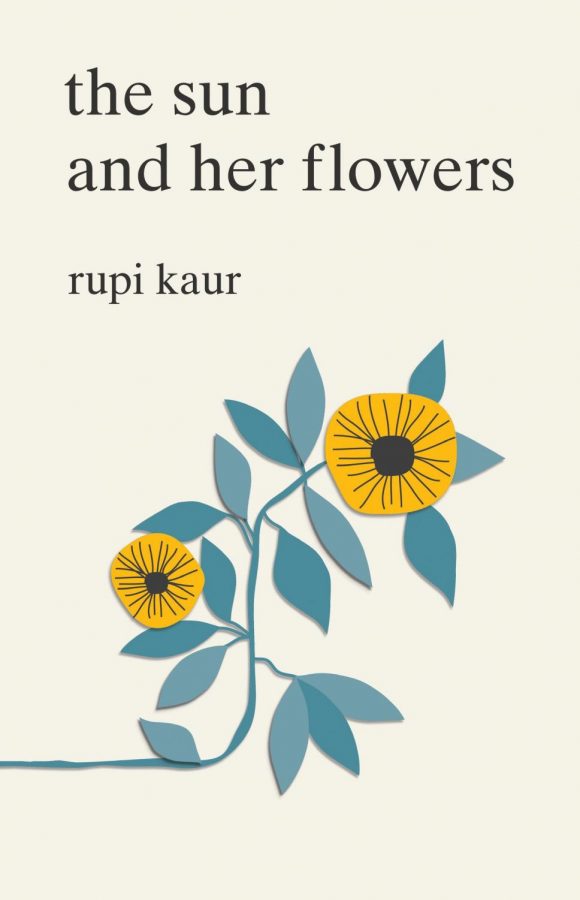Rupi Kaur’s new collection of poetry, ‘The Sun and Her Flowers’ is bittersweet but uplifting
October 23, 2017
Rupi Kaur is a #1 New York Times best-selling author. Her second collection of poetry, “The Sun and Her Flowers,” was published on Oct. 3.
The first self-published collection was “Milk and Honey,” and was translated into 30 languages. That collection of poetry was about survival. She sold over 1.5 million copies and was on the New York Times best seller list for over a year. This book covered controversial themes, and she continues to write boldly for the second collection.
The second collection “The Sun and Her Flowers,” is currently a #1 best seller on Amazon and leans toward healing. The collection features five chapters: Wilting, Falling, Rooting, Rising and Blooming. The chapters allow us to imagine a plant cycle, just like flowers; we wilt, fall, root, and rise to bloom. Kaur touches similar to themes as her first collection such as feminism, love, migration and abuse.
In the first chapter, wilting, one theme she discusses is heartbreak. More specifically, how you feel after someone you loved has left. There is some sadness in these poems, however there is a sense of hope in them. As readers, it might feel like we are reading our own thoughts. She takes us through heartbreak and the pain we eventually overcome. An idea she often mentions is that you can still be whole after your heart has been broken. Kaur carries strength in her writing as she progresses into the next chapter.
The flower is no longer wilting, and we move on to the second chapter, falling. In this section, Kaur writes about insecurity. She writes about the way society makes women feel, including the pain we must endure to meet beauty standards. Kaur also gets personal in a few pieces and writes about her encounter with her abuser. Kaur mentions how this person ruined her views on relationships, and the way she perceives herself after this trauma. There are up-lifting messages in this section, too. Poetry about acceptance and letting go of toxic people in order to become your best self, reminders of self-love and self-worth are also seen.
The third chapter, rooting, features a controversial issue, immigration. Kaur expresses gratitude towards her mother and all she has sacrificed to come to America. She mentions to honor your roots because those who have come before you are still a part of you. In her writing she points out how grateful she is to be given life despite all the chaos it might bring. Kaur also adds messages of unity as a community, and her words continue to show her strength into the next chapter.
In the fourth chapter, rising, the flower has now risen. Strength is definitely shown as she expresses love in a positive light. Words of encouragement regarding love, representing equality in relationships, and reassurance of starting over. Kaur mentions that it is okay to start over with someone new and that moving forward is an option. Her powerful words are comforting for those who may be dealing with the idea of love.
In Kaur’s final chapter, blooming, the positivity has reached a high now that the flower has bloomed. This section is full of self-empowerment, words of wisdom, and loving the skin you were born in. She mentions loving her brown skin, and expresses that others should because it is beautiful despite what society says.
This collection of poetry is worth reading. The messages are inspirational, comforting, and cover themes anyone can relate to. It is also reassuring to know that someone else has similar thoughts too. Regardless of your background, there is something in this collection for everyone.





